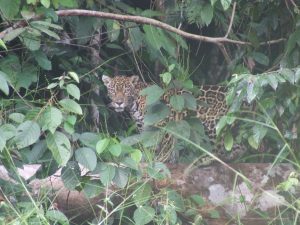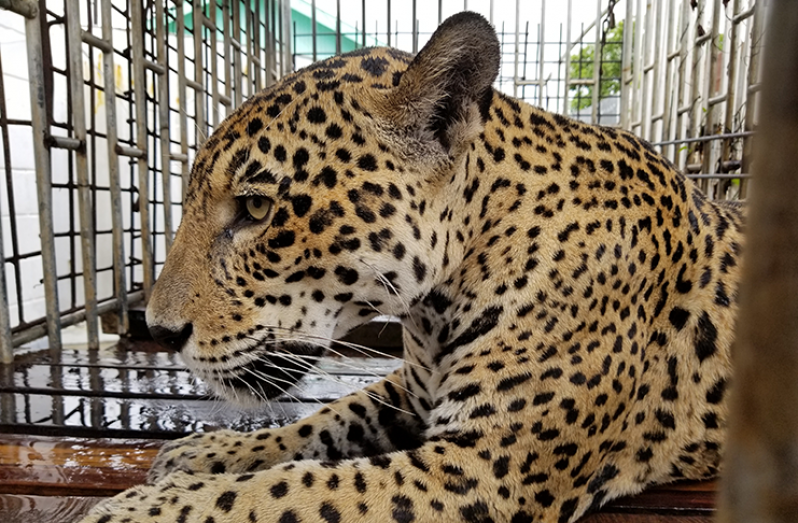THE jaguar has long been intertwined in the fabric of Guyanese history and culture; it stands on Guyana’s Coat of Arms and is considered our national animal.
These majestic animals have earned their places as kings and queens of our forests and are protected by law. In 2018, at the Conference of the Parties for the Convention on Biological Diversity (CDB), November 29 was designated annually as International Jaguar Day. This day was created to raise awareness about the increasing threats facing the jaguar and the critical conservation efforts ensuring its survival from Mexico to Argentina.
 Jaguars play an important role in maintaining the health of our planet. As apex predators, they help to maintain a balance in the population of the species on which they they prey. As such, they contribute to regulation of the global climate and ecosystem resilience, which ensures we benefit from clean water, as well as materials for food, and medicines. The need for jaguar conservation is ever-present. The jaguar has lost 50% of its natural range and its population is declining. In fact, jaguars are now extinct in El Salvador and Uruguay.
Jaguars play an important role in maintaining the health of our planet. As apex predators, they help to maintain a balance in the population of the species on which they they prey. As such, they contribute to regulation of the global climate and ecosystem resilience, which ensures we benefit from clean water, as well as materials for food, and medicines. The need for jaguar conservation is ever-present. The jaguar has lost 50% of its natural range and its population is declining. In fact, jaguars are now extinct in El Salvador and Uruguay.
The main reasons behind the decline in the population of jaguars are conflict with humans; habitat loss due to activities such as mining, logging and agriculture, overhunting of the jaguar’s prey and poaching. Recent estimates suggest that Guyana’s ‘potential’ jaguar population is approximately 4300 (Jdrzejewski et al, 2018). However, further studies are needed to better understand Guyana’s jaguar population and to inform conservation efforts.
The Government of Guyana stands committed to advancing the Jaguar 2030 Conservation Roadmap, which aims to strengthen the Jaguar Corridor, ranging from Mexico to Argentina, by securing 30 priority jaguar-conservation landscapes by the year 2030.
The Guyana Wildlife Conservation and Management Commission (GWCMC), as the agency responsible for the protection, conservation, management and sustainable use of Guyana’s wildlife, is actively involved in conservation efforts to protect the jaguar. Since the beginning of 2018, we have participated in outreaches in approximately 22 communities across the country; this, in a bid to better understand human-jaguar interactions and develop solutions that will reduce conflict between humans and jaguars so we can co-exist mutually. We urge all residents to be cognisant of the importance of the jaguar and understand that we all have a role to play in the protection of this species.



.jpg)










